50 Soccer Players Who Went on to Greater Fame and Notoriety
William Gish@wgish50 Soccer Players Who Went on to Greater Fame and Notoriety
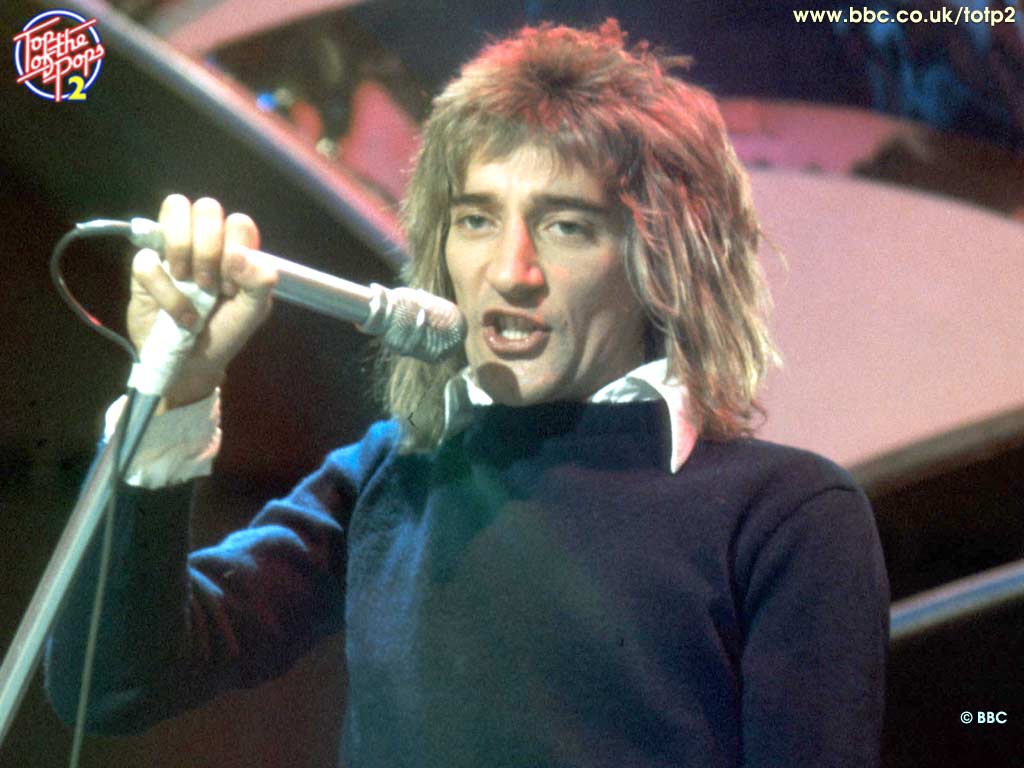
For every Pele, Maradona and Zidane there are a dozen players who had aspirations of greatness but neither had the talent nor dedication.
Here is an epic list of footballers who played professionally, in amateur leagues or just simply lived with dreams of stardom, but found their fame or notoriety through other means.
Please include the dozens of names we’ve left off this list in the comments section below.
Vinnie Jones
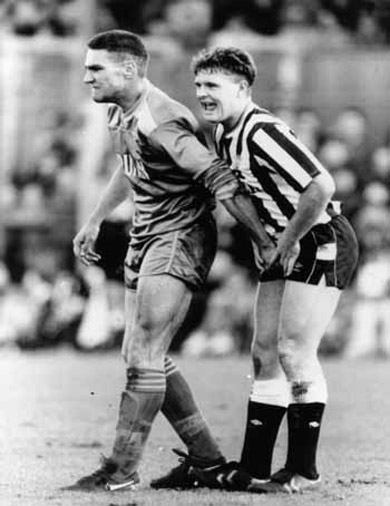
To fans of English soccer, Vinnie Jones was both famous and notorious long before filmmaker Guy Ritchie launched his international career in movies.
Jones, a native of Watford, found notoriety as a classic hardman for Wimbledon, Leeds United, Chelsea, QPR and more during his 15-year career. He committed countless aggressive, unsportsmanlike maneuvers, including an infamous crotch grab.
In 1998, Jones appeared in Lock, Stock and Two Smoking Barrels followed by Snatch in 2000. Ritchie directed both films.
He has since appeared in X-Men: The Last Stand, Swordfish and a short film entitled The Ballad of G.I. Joe.
Photo: Vinnie Jones in the spaghetti western A Fistful of Another Man's Junk.
James Allan
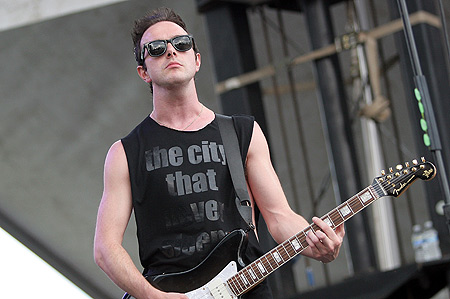
At the age of 21, winger James Allan helped Cowdenbeath win promotion from the Scottish Third Division to the Scottish Second Division. It was the height of his footballing career.
Eleven years later, Allan reached the No. 2 position on the British charts as the lead singer, rhythm guitarist and principal songwriter of Scottish shoegazing popsters Glasvegas.
The band has since sold hundreds of thousands of records, been nominated for countless awards and toured the world. Glasvegas’ sophomore album, Euphoric Heartbreak, hit shelves April 4th, 2011.
Allan’s lyrics contain numerous references to the beautiful game.
Viktor Orbán
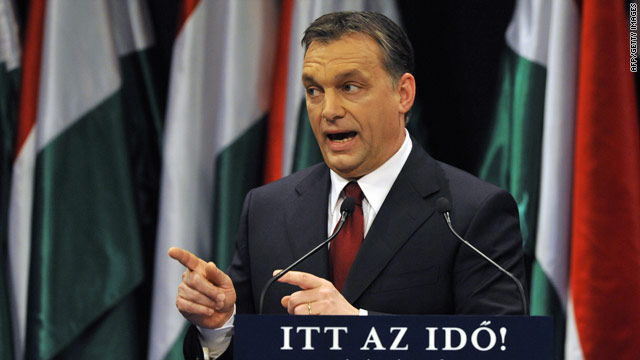
Hungarian Prime Minister Viktor Orbán’s relationship with the club FC Felcsút is somewhat confusing.
As recently as 2007, Orbán was signed to club, and though he commonly appears in charity tournaments with the team, the PM doesn’t seem to have played in a proper, competitive match.
We can say with some certainty that the current Prime Minister of Hungary has achieved significantly more fame for his political career than his soccer career.
George Weah
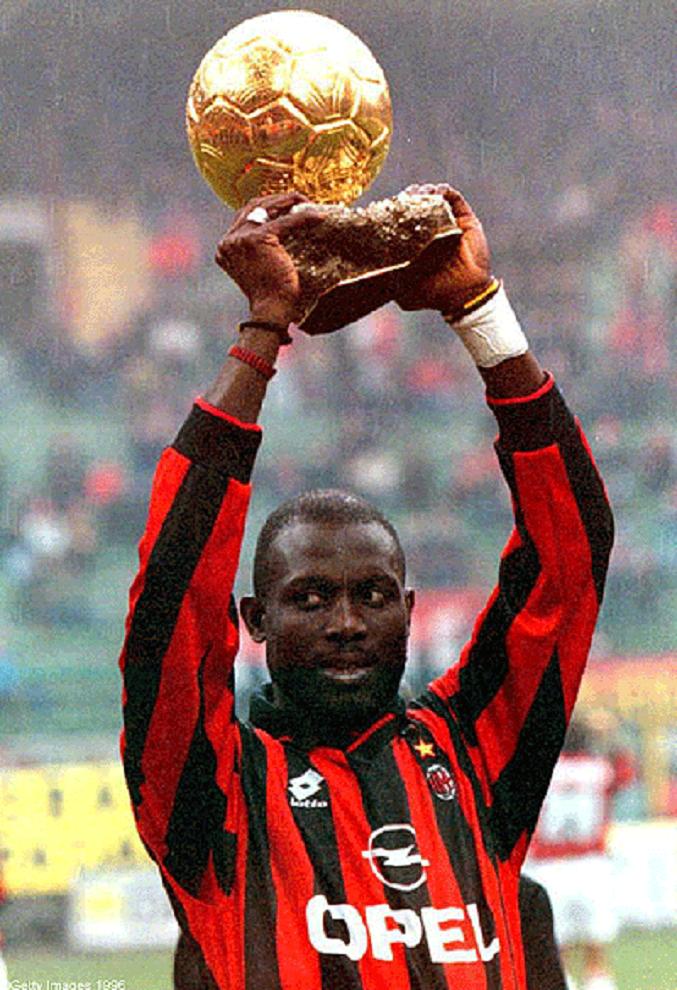
This one is negligible.
Certainly, most people in the football world, or everywhere apart from the United States and maybe China, know George Weah from his exploits on the pitch.
The forward became the first African player to win the FIFA Player of the Year Award in 1995, which year he also won European Player of the Year and African Player of the Year.
Weah scored a total of 228 career goals with teams like Paris Saint-Germain and Milan and spent time with Chelsea and Manchester City on loan spells.
In 2005, Weah ran for president of Liberia. Though he lost that election, he fared better than most thought he would and has since remained active in politics.
Certainly there are those in the world who know of Weah the politician but not Weah the soccer star.
Jon Stewart
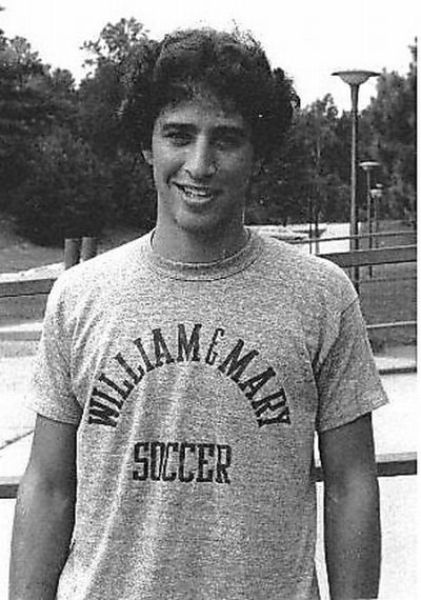
Stand up comic, failed actor, political satirist and The Daily Show host Jon Stewart never played soccer professionally, but he played all four years he attended William & Mary.
During his four years with The Tribe, Stewart scored 10 goals and had 12 assists. His goal in a match against Connecticut sent The Tribe into the NCAA tournament.
Since his time at William & Mary, Stewart has found international acclaim as a satirical political pundit.
Ethan Zohn
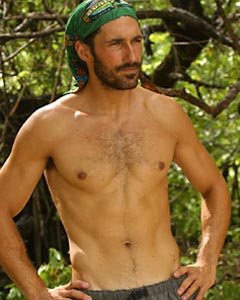
Most Americans known Ethan Zohn as the guy who won Survivor: Africa in January 2002.
In 2010, USLSoccer.com named Zohn the 14th most influential USL player of the last decade. The goalkeeper played for Hawaii and Cape Cod in the late '90s and early '00s. Before you ask, Zohn wasn’t very good.
But he’s since done a good deal of charity work, including dribbling a ball 500 miles from Foxboro, Mass. to Washington, DC to raise money for HIV/AIDS relief.
Zohn also contributes to various American media outlets as an MLS commentator.
Robert Gibbs
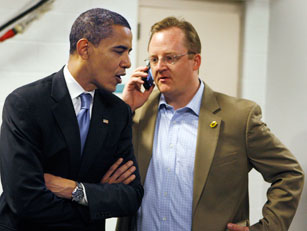
Robert Gibbs attended North Carolina State University, where he served as the North Carolina State Wolfpack keeper from 1990 to 1992.
Gibbs went on to an illustrious career in national politics in the United States.
He served as communications director during then Senator Barack Obama’s 2008 presidential campaign, was press secretary during John Kerry’s 2004 presidential bid and served as the 28th White House Press Secretary, a position from which Gibbs retired on Feb. 11, 2011.
Gordon Ramsay
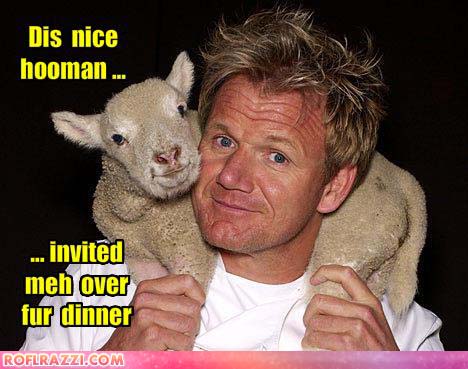
Chef Gordon Ramsay was scouted by midlands club Warwickshire at the age of 12. He continued to play on youth teams until 1984, in which year he had a trial for Rangers.
Ramsay was a diehard Rangers supporter as a child and thought he had found himself a golden ticket. Unfortunately, the future celebrity chef suffered a debilitating knee injury during his trail, despite only being 18 years old.
The injury precipitated Ramsay to hang up his soccer boots and try his hand at the culinary arts. Now he’s a cantankerous jackass who crushes dreams on reality television programs.
Guigsy
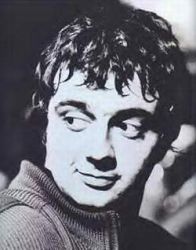
Paul McGuigan was either very lucky or very unlucky, depending on how you look at it.
He sure made a boatload of money playing bass for Oasis from 1991 to 1999, but he was so crap that Noel Gallagher re-recorded almost all of his parts.
Yet McGuigan knows enough about football that he co-authored a book—The Greatest Footballer You Never Saw—about Reading striker Robin Friday, while in Oasis.
Guigsy played for various youth teams in Manchester while growing up but suffered a career-ending knee injury at 16 that put his aspirations of football stardom to an end.
Sure, it led to his career in Oasis, but it ended his childhood dreams.
Julio Iglesias
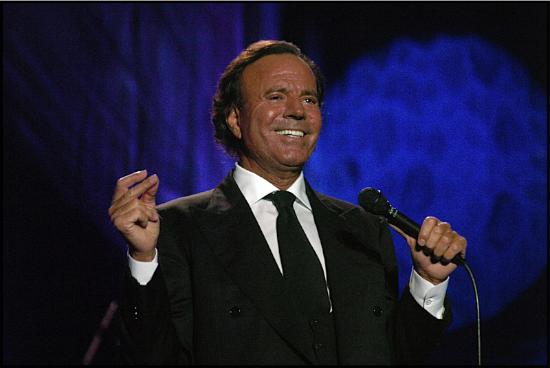
As a young man, Julio Iglesias showed promise as a goalkeeper in Real Madrid’s youth system.
Unfortunately for discerning music fans the world over, Iglesias suffered serious injuries in a car accident that led him to quit football and start studying law.
We’ll let you ponder his transition from law student to the singer who has sold over 300 million copies of his 77 albums. To reiterate, the man has released 77 albums.
The Spanish pop icon also fathered Julio and Enrqiue Iglesias, superstars in their own right.
Photo: Iglesias does his best to resemble the Crypt Keeper.
Keith Costigan
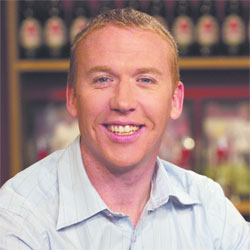
Irishman Keith Costigan played for a number of clubs over the years, though never in a very high profile capacity.
Among the teams he spent time with are youth clubs St. Kevins Boys and Stella Maris, League of Ireland sides Bray Wanderers and Monaghan United Football Club and American teams Portland Timbers and LA Galaxy.
Since retiring from football, Costigan has become a familiar presence to American soccer fans through his steady work as commentator and analyst for Fox Soccer, for which he is surely more well known that his career as a player.
Photo: I'm ready for my close-up, Mr. Murdoch.
Alex Ferguson
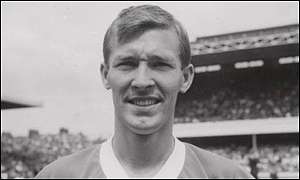
This one doesn’t require much explaining.
Alex Ferguson was a good footballer. He scored 66 goals in 89 appearances with Dunfermline Athletic between 1964 and 1967 and finished his soccer career 170 goals in 317 games.
But Ferguson is the most dominant, famous and feared manager in modern soccer.
He was well known to fans of Scottish football in his playing days. As a coach, Ferguson is a global celebrity that even those who couldn’t care less about the EPL recognize and respect as a tactical genius.
Steve Harris
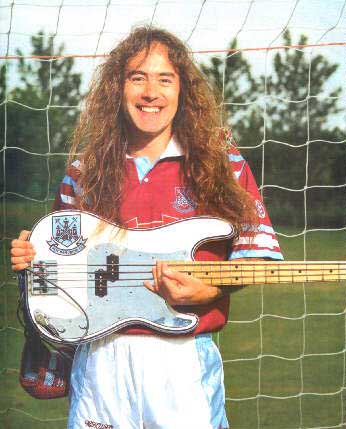
Steve Harris played for the West Ham youth system in the mid-1970s, while at the same time shredding bass riffs in a then little-known metal band called Iron Maiden.
The call of the riff proved too strong for Harris, who ultimately surrendered his fledgling soccer career for New Wave of British Heavy Metal superstardom.
To this day, Harris remains a diehard Hammers fan, often sporting a West Ham crest on his basses.
Andy Gray
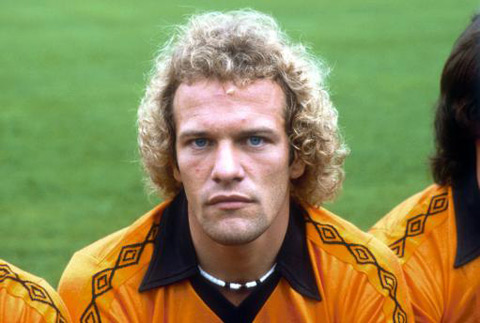
The source Andy Gray’s fame is difficult to assess.
To long-time fans of the EPL he will always be known as the talented striker who scored a career total 178 goals in 493 performances for clubs such as Aston Villa and Everton.
However, to young football fans throughout the world, Gray is most famous as a Sky Sports pundit and host of the show Andy Gray’s Last World.
In January of 2011, Gray became the center of a soccer scandal when he made a number of sexist comments about female officials in a conversation with fellow commentator Richard Keys. The two thought their microphones were turned off.
“Can you believe that? A female linesman. Women don’t know the offside rule,” said Gray.
Photo: Gray, looking like a roadie for the Scorpions.
Jimmy Gauld
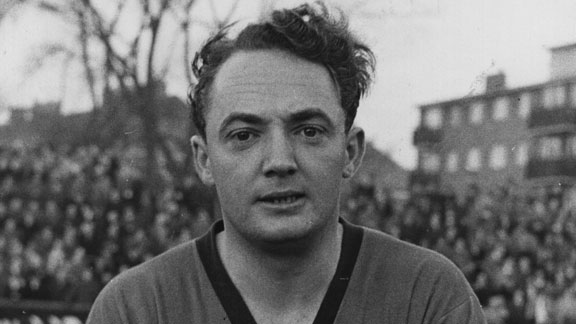
Former Everton striker Jimmy Gauld found himself in the center of a national furor of notoriety when the story of the British betting scandal of 1964 broke. Ironically, it was Gauld himself who broke the story, in search for one final payday.
Throughout the '50s and '60s, Gauld orchestrated massive fraud by conspiring with a number of players throughout the league to fix matches and reap enormous cash benefits through betting operations.
Gauld was fined £5,000 and sentenced to four years in prison. In 1997, Bourne series director Paul Greengrass made the film The Fix for the BBC, detailing the events of the scandal.
Photo: Sometimes you can tell a creep at first glance.
Gary Charles
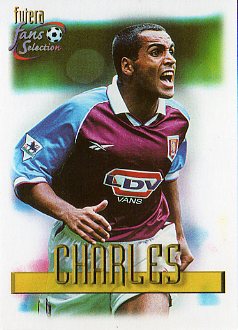
Retired defender Gary Charles spent time with West Ham, Aston Villa, Birmingham and Benefica before retiring due to alcoholism and related legal problems.
Charles gained notoriety for his exploits off the pitch. These problems, all related to alcohol, include drunk driving offenses, cutting off an ankle bracelet to go vacationing in Costa Rica and turning up drunk to court.
All of this culminated in year-long prison term arising from drunken threats Gray levied at a nightclub bouncer while serving a suspended sentence on a previous assault charge.
Mickey Thomas
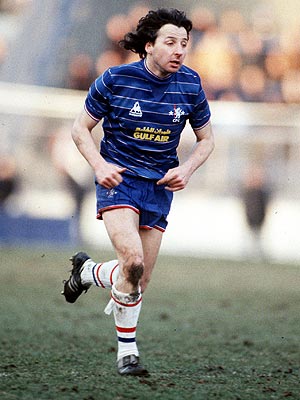
Welsh winger Mickey Thomas spent time with a number of high profile clubs during his 21-year professional soccer career, including Manchester United, Stoke, Everton and Chelsea.
Despite this somewhat illustrious career, which saw Thomas earn 51 caps and score four goals for Wales, the player is most well known for a criminal charge that sent him to prison for 18 months.
In 1993, while playing for Wrexham FC, Thomas was found guilty of laundering counterfeit money through the club’s trainees. Pure class.
Thomas is now an after dinner speaker whose favorite joke is “Roy Keane's on 50 grand a week. So was I till the police found my printing machine.”
Photo: Apparently 50 grand a week isn't enough to buy a decent haircut.
Tofik Bahramov
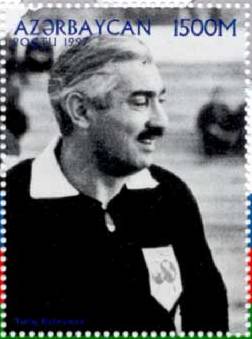
Tofik Bahramov, more commonly known as The Russian Linesman, started his career as a footballer in his native Azerbaijan before turning to officiating in the wake of an injury.
In the 1966 World Cup final, Bahramov's decision on a ball that England striker Geoff Hurst ricocheted off the cross bar essentially decided the fate of the game. He gave the goal to England, despite many believing it never crossed the goal line.
When asked how he could be so sure the ball crossed the goal line, Bahramov replied “Stalingrad,” in reference to the battle in which German soldiers killed upward of a million Russians.
Bahramov made little impact as a player but will live forever in the annals of football myth for his infamous decision.
Rod Stewart
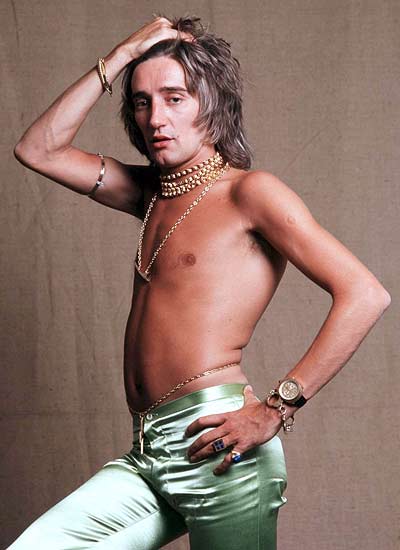
In his late teens, Rod Stewart signed a contract with Brenton Football Club. He made the side’s second team, though quit not long after signing.
Young Stewart was overcome with disappointment that he spent most of his time minding the first team’s equipment and cleaning up after them.
So Rod gave up on soccer and decided to pursue his other passion, music. He would go on to sell over 100 million albums worldwide.
Gary Lineker
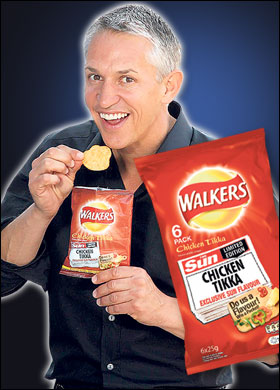
Gary Lineker holds the honor of being the top scoring English player in the history of the World Cup finals. The striker won the Golden Boot in the 1986 World Cup Mexico, the only English player to have done so.
Despite this monumental accomplishment, Lineker went on to greater fame in the aftermath of his football career as a presenter for BBC, Al Jazeera Sports and Eredivisie Live.
Lineker has also been an ubiquitous presence in British popular culture since 1994, when he became a spokesperson for the Walker potato chip brand.
Photo: Lineker, doing you a flavor.
Al-Saadi Al-Gaddafi
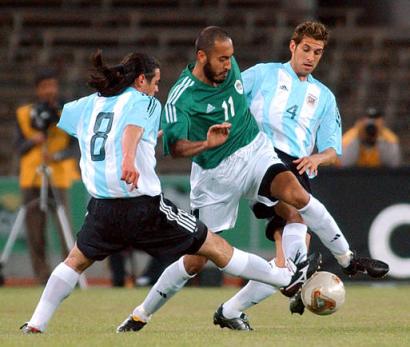
Former Udinese and Sampdoria forward Al-Saadi al-Gaddafi may be the only former Serie A player to have had an Interpol warning issued against him.
That warning, an Orange warning, cautions that al-Gaddafi may have “disguised weapons, parcel bombs or other dangerous materials” on his person.
The ex-soccer player is the third son of Libyan dictator Muammar al-Gaddafi and took charge of the country’s Special Forces during the 2011 uprising.
Al-Saadi implemented the tactic of attacking Libyan citizens with small, specialized ground units capable of quick movement and spur-of-the-moment tactical adaptation in a way that helicopters, tanks and large units aren’t.
What a guy.
Evo Morales
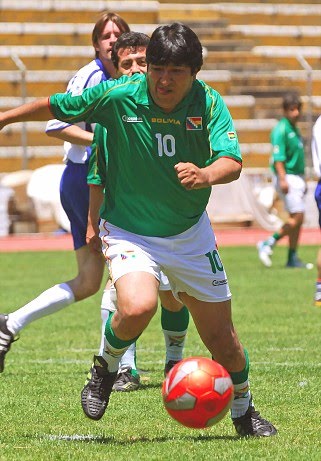
Evo Morales is the current president of Bolivia and an avid soccer player.
When he was 14, Morales displayed organizational acumen and strong leadership when he assembled, coached and played for a local soccer team that competed throughout the region he is from.
At 16, Morales was elected technical director of squad selection for a low-level local side. In 1981, when he was 22 years old, Morales was promoted to president of his local soccer organization, while also playing for the side.
Though Morales devoted himself to politics and the betterment of the Bolivian people, he continues to play soccer with local teams throughout Bolivia.
The leftist trade unionist loves the beautiful game and the pursuit of equality in equal measure.
Tom Cruise
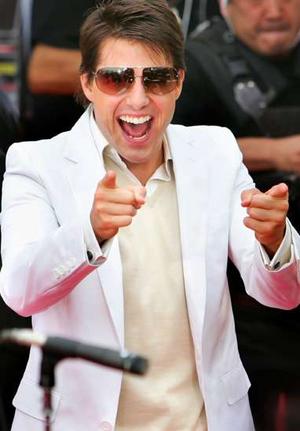
Tom Cruise pursued soccer and hockey all through his school years, though gave up the sport in pursuit of Hollywood celebrity upon graduating from high school.
Because Cruise is American and grew up between the States and Canada, he never had the chance to demonstrate his skills on youth teams or in a semi-professional environment.
Despite abandoning soccer in favor of a career in acting, Cruise seems to have continued playing in his free time. A video from the set of Knight and Day shows Cruiz and co-star Cameron Diaz demonstrating some decent, if not exceptional, moves.
Photo: Tom Cruise wants you to know that he's a really sweet guy who only likes men as friends.
Adolf Dassler
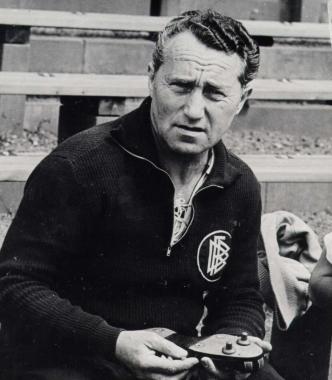
Adolf Dassler played soccer all through his childhood and teenage years, during which time he trained as a cobbler.
In an effort to combine his two passions, Adolf and his brother, Rudolph Dassler, began making shoes for athletes, particularly soccer players and track stars.
Adolf, called Adi, revolutionized the architecture of soccer shoes by adding features such as removable cleats. Dassler registered over 700 patents to his company, the name of which is a portmanteau of his first and last names: Adidas.
After the Second World War, Adi and Rudolph split their business partnership; the latter went on to found Puma.
Osama Bin Laden
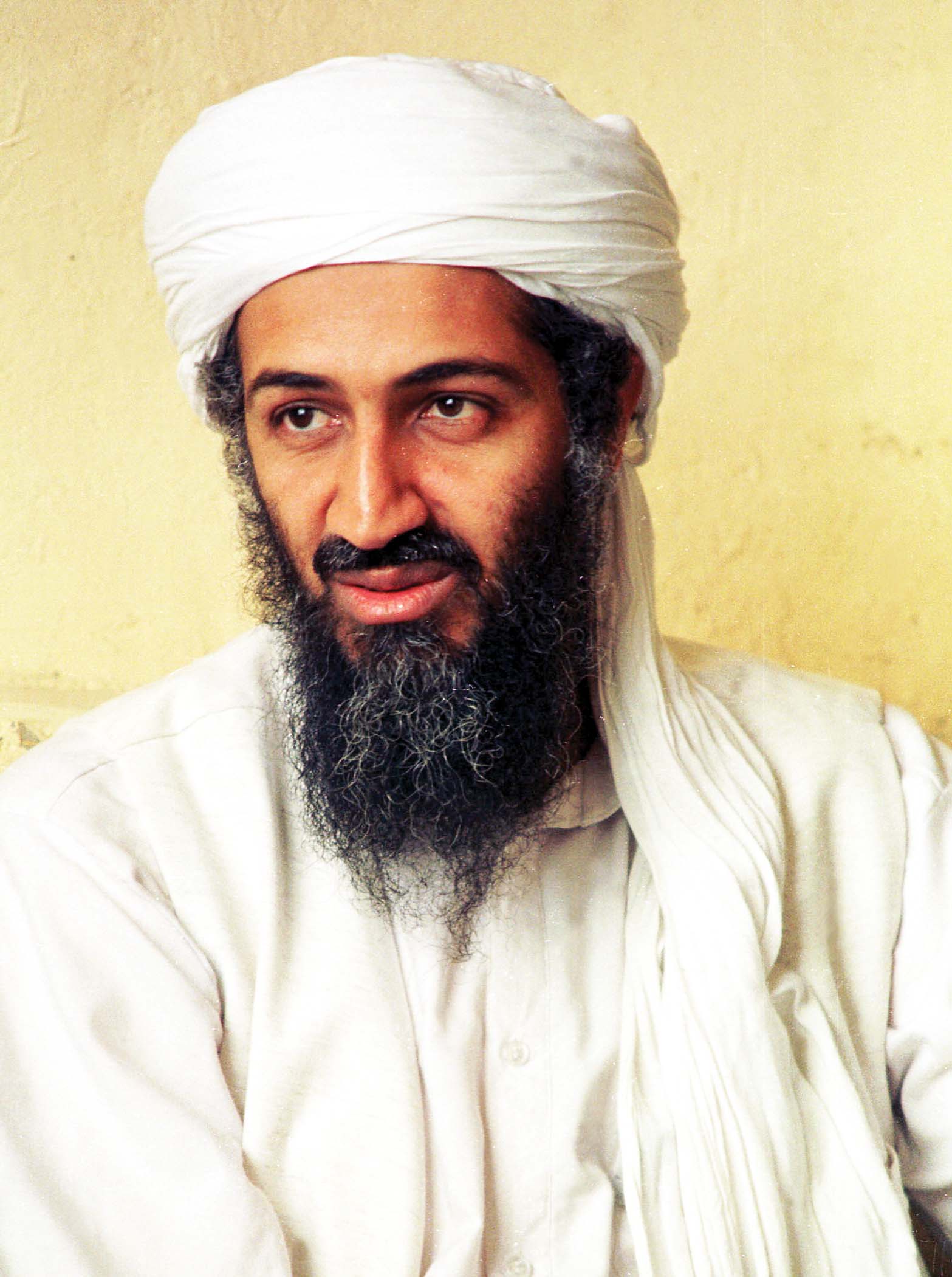
Osama Bin Laden’s love of the beautiful game is widely publicized. What we don’t discuss as often is his days as a player.
Though Bin Laden never pursued the sport professionally, he used, and probably still uses, the game as method of creating camaraderie amongst men.
Throughout his life, Bin Laden has used to game as a recruitment tool and a method to assuage the boredom of hours spent waiting for something to happen at military camps during the Soviet invasion of Afghanistan and during the Al-Queda years.
Newsweek went so far as to describe soccer activities organized by Bin Laden during the Soviet invasion as a "de facto mini-World Cup."
Antonio Banderas
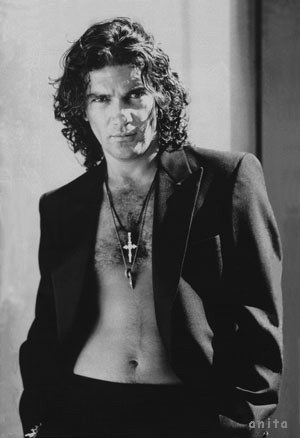
Spanish actor Antonio Banderas entertained dreams of playing professional soccer through his childhood and teen years.
A talented player, Banderas played for various youth teams in and around his hometown of Málaga, Spain. Young Antonio attracted attention from some clubs but his dreams of footballing stardom when he mangled his foot at 14.
Banderas turned his attention to the arts while recovering from his foot wound and would go on to find success in Hollywood, staring in films such as Desperado and Zorro.
Yasuhiko Okudera
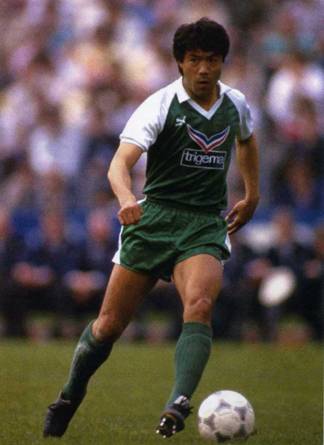
Yasuhiko Okudera became the first Japanese footballer to play professionally outside of Japan when he signed to German side 1. FC Köln in 1977.
Despite playing several high-profile seasons in Germany, Okudera is most well known in Japan for being the catalyst of professional soccer in the country.
Okudera returned to Japan a hero 1988, at which time investors began to see the benefits of forming a professional league in the country.
During the inaugural season of the J. League, in 1993, Okudera served as the president and manager of Fukuwara, now JEF United Ichihara Chiba. In 1998, Okudera co-founded his own team, Yokohama F.C, which worked its way from the lowest level of Japanese football to the top tier while Okudera served as club president.
In 2008, Okudera became president of League One side Plymouth Argyle.
Colin Farrell
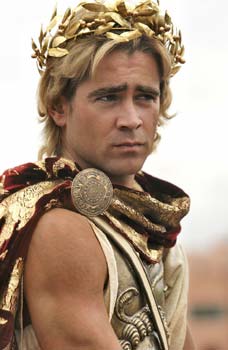
Eamon Farrell, father to Colin, and Tommy Farrell, uncle to Colin, both played professional soccer for Irish side Shamrock Rovers FC.
All through his youth, Farrell nursed the dream of becoming a soccer star. He played competitively for a number of teams in Ireland until his late teens, at which point his growing affection for drugs and alcohol took precedence over his love for sport.
Farrell’s abandonment of soccer led him to seek an alternate path to stardom. After a failed try out for Boyzone, the Irish equivalent of N’SYNC, Farrell turned to acting, and we all know the rest of the story.
Rivers Cuomo
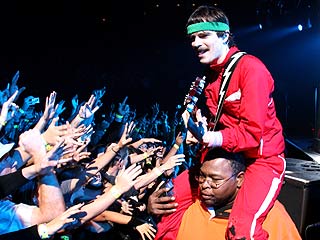
Weezer frontman Rivers Cuomo grew up with dreams of being a professional soccer player.
Like so many other talented young players, Cuomo received an ultimatum from his doctor: keep playing and you’ll ruin your body. Why? Because one of his legs was significantly longer than the other.
Cuomo turned his attentions to music. After the success of the first Weezer album he was able to afford a complex surgical process that rectified his leg situation.
The crown prince of pop geeks now has legs of equal lengths and regularly plays in celebrity charity soccer matches alongside fellow aficionados like Steve Nash.
Jose Mourinho
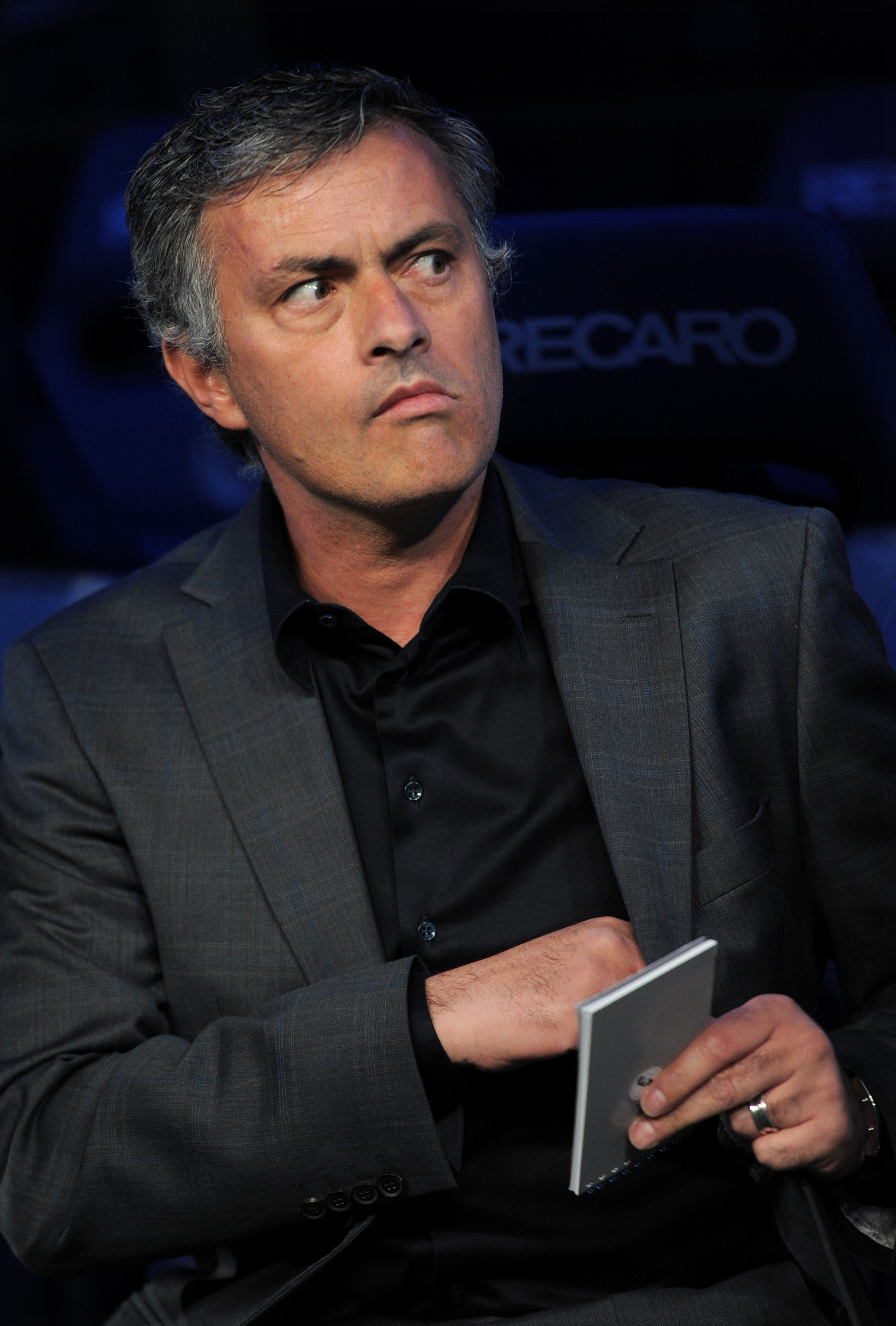
Jose Mourinho hasn’t gone a full calendar year without winning a major trophy since 2002.
It’s strange to think of this supreme mind ninja not being successful in soccer, but Mourinho’s career as a player was short and troubled. During spells with Rio Ave, Belenenses and Sesimbra, Mourinho exhibited a striking lack of pace and power.
The young Portuguese tactician turned his focus to coaching. He took courses in England and Scotland and worked his way to the position of Porto manager.
In his first year in charge at Porto, Mourinho took the team to the top of the Primeira Liga with a 27-5-2 record, 11 points clear of second place Benifica. The next year, Porto won the Champion’s league.
Mourinho is revered as one of the most brilliant coaches of the modern era.
Bob Marley
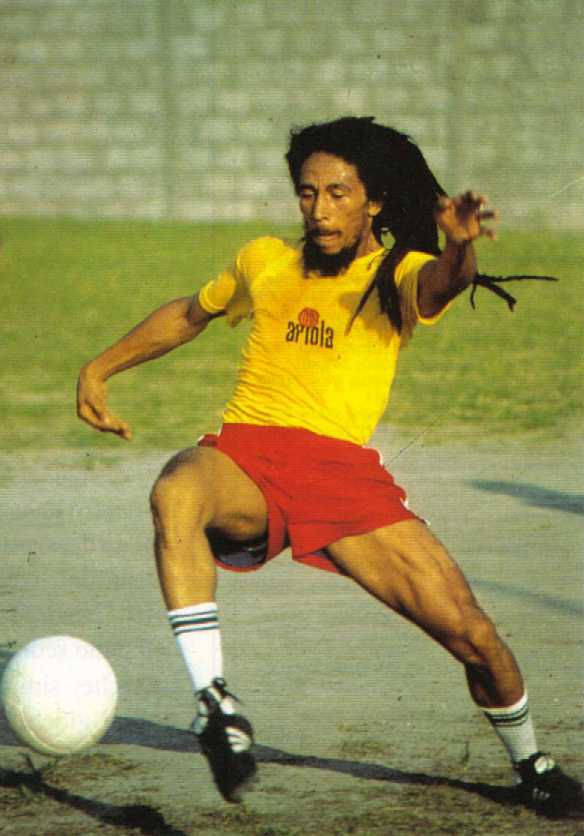
Bob Marley no dip on the white man’s side, and he no dip on the black man’s side, but he dip on the side of the football pitch.
Marley grew up playing soccer in Jamaica, both for fun and in school and local leagues. Born to an English father and Jamaican mother, the sport was in his blood.
Due to a lack of professional opportunities in the Caribbean at the time and the young rasta’s love of music, Marley pursued reggae as a career and kept soccer as a passion.
Countless photos of Marley playing soccer exist. Those close to him insist that he played everyday, whether on tour or in the studio.
In fact, photos of him playing in venues before concerts and even in the studio can be found on fan websites.
Robbie Williams
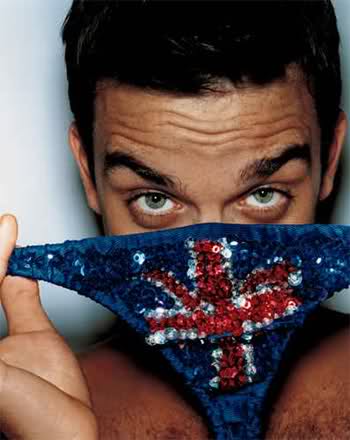
English singing sensation Robbie Williams has sold 57 million albums worldwide.
Williams is the most popular non-Latin singer in Latin America (weird fact, that) and is the best-selling British solo artist in the UK.
Before finding fame with boy band Take That, Williams played briefly at current League Two side Port Vale FC, based in the Stoke-on-Trent area. Williams is now the majority shareowner of the organization.
Photo: That's for a Woman, Robbie, just so you know...
Arsene Wenger
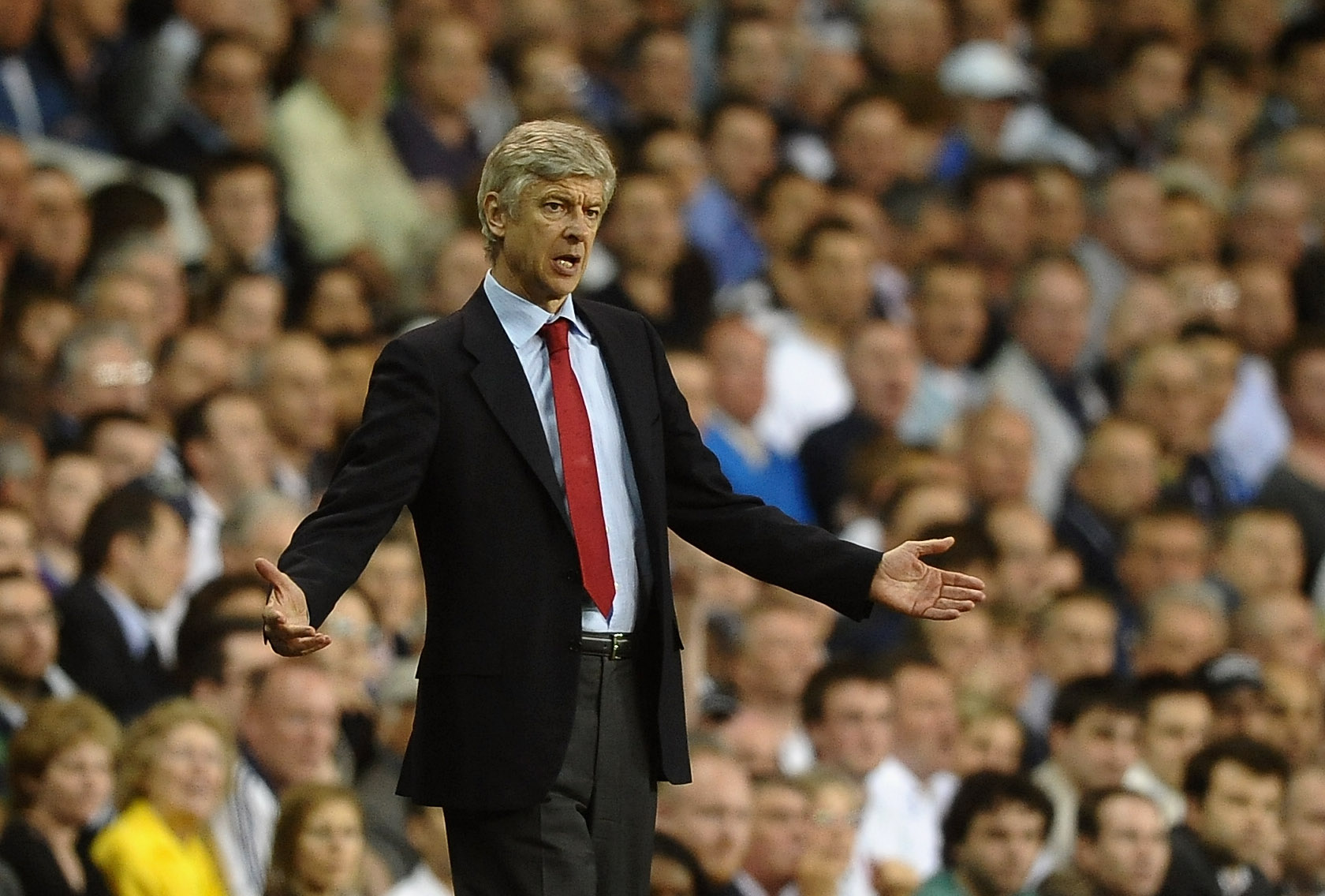
Arsenal’s Arsene Wenger played for eight years on teams such as Mulhouse, ASPV Strasbourg and RC Strasbourg but didn’t make much of an impact.
However, the playing was something of a diversion for Wenger, who was studying for a master’s degree for some of those years.
Since hanging up his playing boots for good, Wenger has had a vast impact on the modern game. From using scientific training methods to regimenting the diet of his players, the Gunners gaffer is a radical and forward thinker.
Jessica Biel
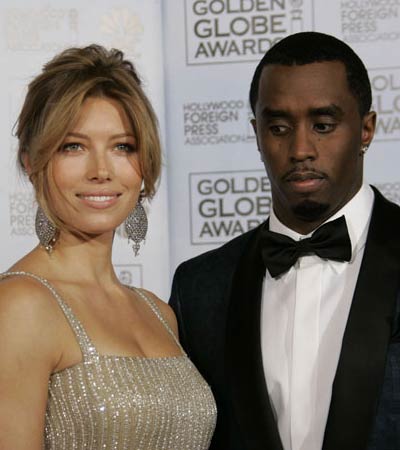
Actress Jessica Biel grew up idolizing Mia Hamm. "That was the person I wanted to be, not a supermodel. I wanted ripped abs, muscular thighs, beautiful arms," Biel said in an interview with the Seattle Post-Intelligencer.
Unfortunately, being a woman, she didn’t stand much of a chance of making a splash as a professional athlete, so when she was offered a role on TV drama 7th Heaven, she jumped at the chance.
However, Biel continues to play the beautiful game in celebrity matches and for fun, in her free time.
Photo: Whatcha lookin at, P Diddy?
Michel Platini
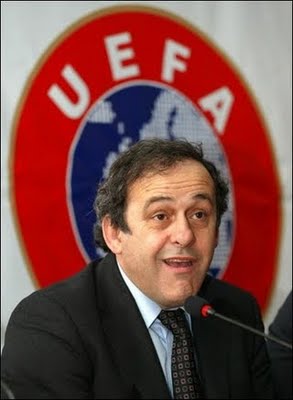
Frenchman Michel Platini had a damn fine stretch as a soccer player, but he’s gained greater international visibility since retiring.
Platini won countless awards and trophies at the League level and guided France to the semifinals of the 1982 and 1986 World Cup finals. As an attacking midfielder, Platini dominated the pace and movement of matches and snuck surreptitious cigarettes at the half.
Since retiring, Platini has gone on to coaching and administrative work. In 2006, he was elected president of the Union of European Football Associations, UEFA.
As an administrator, Platini has impacted the modern game by backing salary and transfers spending caps, limiting foreign ownership of domestic teams, reducing the power of nations such as England, Spain and Italy by, among other things, limiting their Champion’s League spots, prohibiting the international transfer of players younger than 18 (which he controversially called child trafficking) and the 6-plus-5 rule, which would require domestic teams to field players from the home country of the league and five foreign players.
Fernando Collor De Mello
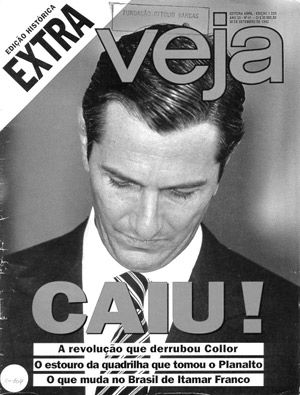
Fernando Collor de Mello served as the 32nd president of Brazil for two years, though he resigned in 1992 in an effort to put an end to impeachment charges brought against him by the nation’s government.
The first president freely elected by the Brazilian people after a period of military rule, Collor played soccer throughout his youth and used the sport as a launching pad for his political career.
At the age of 27, the former player assumed presidency of the Centro Sportivo Alagoano club. Meollo used the popularity gained from that gig to become governor of the state of Alagoas.
Collor is a notorious figure in Brazilian history, having practiced as much, if not more, corruption than the corrupt officials he was elected to combat.
William McGregor
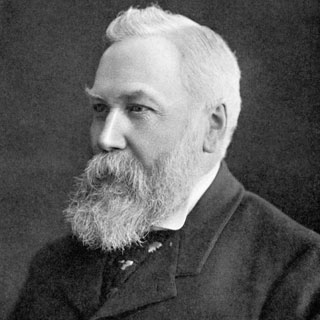
Scotsman William McGregor played football for Calthorpe, a 19th century club in the Birmingham area.
A businessman, McGregor played matches on the weekends and operated a drapery shop throughout the week. He became one of the first people in Britain to sell team kits, which he peddled through his store.
However, McGregor’s greatest claim to fame was the founding of the Football League, in 1888, with squads such as Aston Villa, a team on whose management committee he served, Blackburn Rovers, Bolton Wanderers, Preston North End and West Bromwich Albion.
McGregor based the organization of the league on that used in American baseball.
Eamon Dunphy
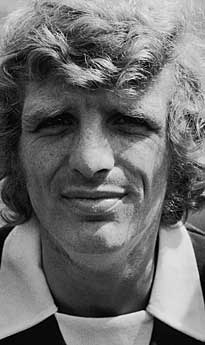
Eamon Dunphy is an Irish media personality, soccer pundit, author, radio and television commentator and former footballer.
Dunphy played for teams such as Millwall, Reading, Charlton Athletic and Shamrock Rovers before hanging up his boots and covering Champions League football, hosting the weekly show Conversations with Eamon Dunphy and writing for the Irish Daily Star newspaper.
Dunphy has cultivated enough fame and a singular enough personality to be the object of parody on comedy shows like Scrap Saturday and Après Match.
Pope John Paul II
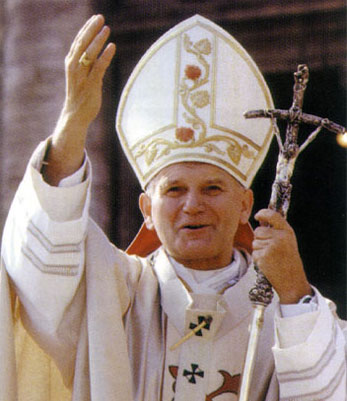
As a youth in Wodowice, Poland, Karol Józef Wojtyła played goalkeeper for local, religious and school teams.
Even before becoming Pope John Paul II, Wojtyla brokered peace between religious communities by offering to play for Jewish teams short on players in matches between the Catholics and the Jews.
Though he pursued a career in religious leadership, John Paul retained his passion for athletics. Estádio João Paulo II, a soccer stadium in Brazil, is named after him.
Mahmoud El-Gohary
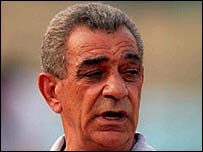
Mahmoud El-Gohary is a soccer hero of Africa and the Arab world.
The Egyptian manager, who played for Al Ahly in his youth, is widely regarded as the best tactician his country has produced.
El-Gohary coached the Egyptian national team to its first World Cup finals in 56 years in 1990 and managed the Jordanian national team to its highest ever FIFA World Ranking—37.
John Harley
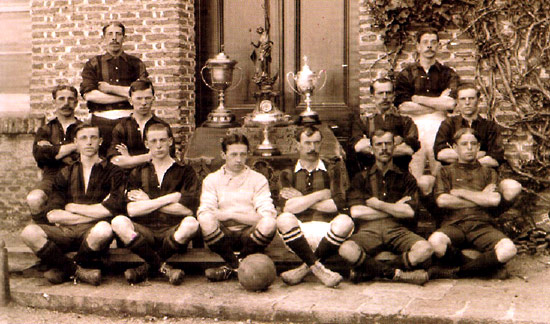
Born in Scotland, raised in Uruguay, John Harley directly influenced the course of world football in early years of the 20th century.
As a player, Harley made a minimal impact on soccer. Upon retirement, he took up coaching and changed the nature of the Uruguayan game from long ball to short, controlled passing and pressing.
This tactical shift contributed to Uruguay’s global dominance in the early years of the World Cup tournament and the Olympic games of the 1920s.
Somewhat spectacularly, Harley did all of this as an amateur—he made his money working for the Central Uruguay Railway, a company with which he spent 37 years.
Photo: Harley, middle row left, sans facial hair.
Pierluigi Collina
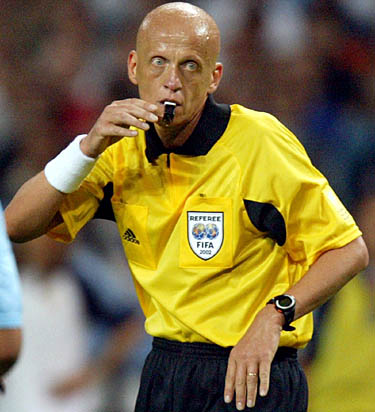
Bug-eyed and alien-headed, Pierluigi Collina is widely regarded one of, if not the single greatest referee in the modern game.
Collina played central defense for a local team in Bologna before pursuing a career in refereeing at the behest of a friend’s recommendation.
After refereeing a number of high profile matches in Serie A and at the international level in the World Cup and other tournaments, Collina retired.
In the wake of his near 20-year career, the über ref now works as an unpaid consultant for Italian Football Referees Association and as a curator of judges for the Football Federation of Ukraine.
Johnny Marr
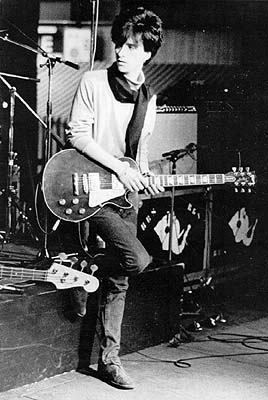
Guitarist Johnny Marr found fame with The Smiths and served as a sort of spiritual godfather to the Manchester scene and Oasis’ Noel Gallagher.
As a teenager, Marr played for a number of youth teams and had tryouts for both Nottingham Forest and Manchester City.
Nothing came of the tryouts because, according to Marr, he was the only one on the pitch at the time wearing eyeliner.
Andrew Shue
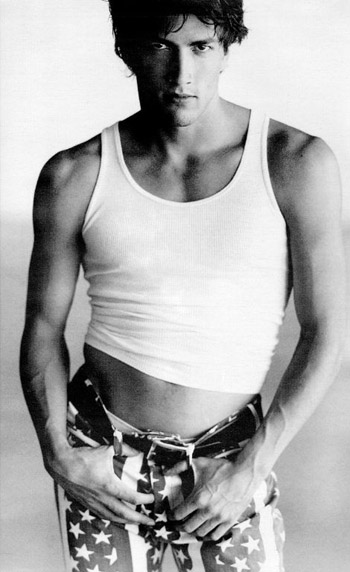
Andrew Shue rose to fame through his role as Billy Campbell on Melrose Place and is now equally as well known for his various philanthropic endeavors.
Before pursuing a career in acting, Shue played for Queen's Park FC in Glasgow, Scotland and for Zimbabwe national champions Bulawayo Highlanders.
How Delaware native Shue ended up playing for teams in Scotland and Zimbabwe is too long a story to fit into this space, but it’s an interesting saga.
Stefan Effenberg
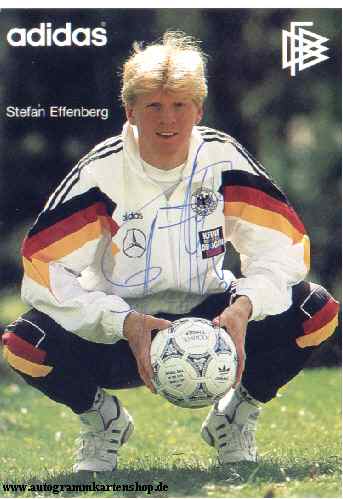
Stefan Effenberg was a high profile soccer player for a number of years, but he truly earned his fame through his outrageous statements, off-pitch exploits and media personality.
Throughout the '80s and '90s, Effenberg played for Bayern Munich and Fiorentina, among others, at club level, and on the West German and German national teams.
In the late '90s, Effenberg announced he was having a torrid affair with Claudia Strunz, the wife of Thomas Strunz, Effenberg’s former teammate. Strunz and Effenberg posed for erotic, nude photos together and got one another’s names tattooed on each other, replete with spelling mistakes.
Effenberg also wrote a tell-all autobiography famed for its atrocious grammar (give him points for not using a ghost writer), reams of criticism leveled at other players and soccer luminaries and over-the-top sexual content.
In 2001, Effenberg was convicted for assaulting a woman in a nightclub and controversially stated in an interview with German Playboy that unemployed Germans are too lazy to work and therefore shouldn’t get benefits.
Ces Dacre
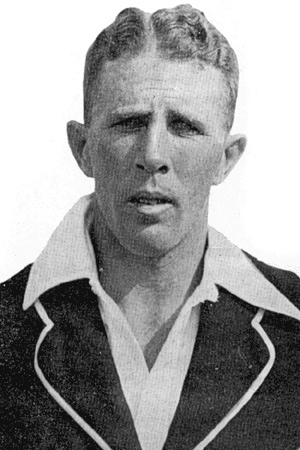
Kiwi cricketer Ces Dacre scored two goals in his professional soccer career. As a prolific and aggressive batsman, he scored 12,230 runs in 268 matches of first class New Zealand cricket, 1,070 of which came in 1927 alone.
Dacre maintained a batting average of 29.19, a bowling average of 31.25 and even had a five-wicket inning in his career.
At the international level, Dacre toured England once and Australia twice with the New Zealand national team.
Toni Fritsch
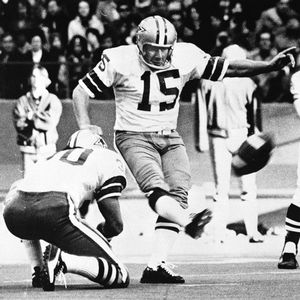
Austrian Toni Fritsch is probably the only person to have ever scored a brace at Wembley and won the Super Bowl.
Fritsch joined Rapid Vienna at the age of 13 and made the first team at the age of 19. He scored 15 goals in 123 appearances with the side and earned nine caps for the Austrian national team.
At the age of 26, Fritsch was scouted by the Dallas Cowboys, despite having never played American football before. He joined the team as a place kicker and won the Super Bowl the following year, in 1972.
Fritsch continued to play in the NFL until 1982 and even made the Pro Bowl in 1979. All told, he scored 758 points in his NFL career.
Andrés Escobar Saldarriaga
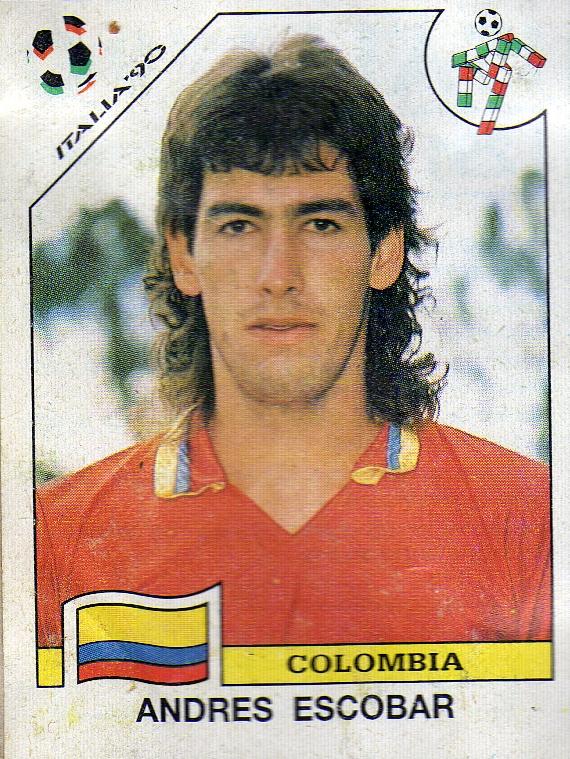
Not many people outside of Columbia knew of Andrés Escobar Saldarriaga as a soccer player.
But everyone knows about the guy who was shot in the head for scoring an own goal in the 1994 World Cup.
While Escobar’s killers were never caught, and thus their motive never determined, it’s widely believed that the professional soccer player’s murder was the direct result of his own goal against the United States on June 22nd, 1994.
Many believe that Colombia drug dealers lost heaps of money through betting operations due to the goal.
While Escobar is famous for reasons related to soccer, it was his murder, and not the sport, that ultimately made his fame and created the notoriety surrounding his name to this day.
Augusto Pinochet and Uday Hussein
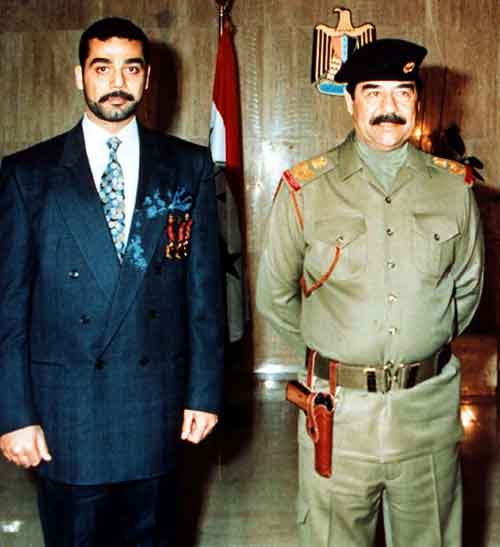
Two for one slide!
While neither Augusto Pinochet nor Uday Hussein is documented as having played soccer, both used the sport and its facilities to terrorize their people.
Upon assuming control via a coup in the 1970s, Pinochet rounded up supposed enemies of the state and housed them in the Estadio Nacional, the country’s hallowed ground of football.
Mass killings of these prisoners took place while others stood helpless and watched.
Uday Hussein, son to Sadam Hussein, tortured players on the Iraq national team for failing to make the World Cup finals.
Among other things, Hussein forced the players to kick cement balls until all the bones in their feet shattered, locked them in iron maidens (seriously) and employed electric shock treatment.